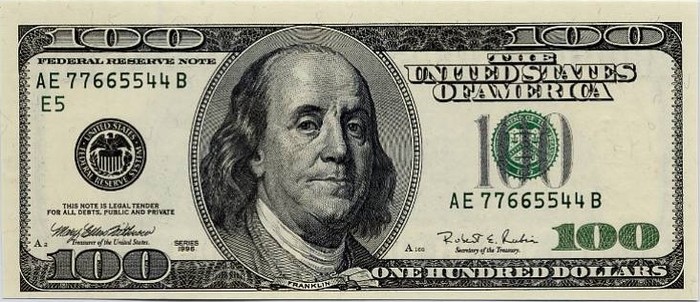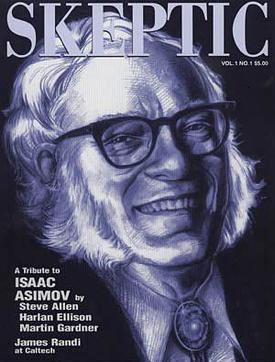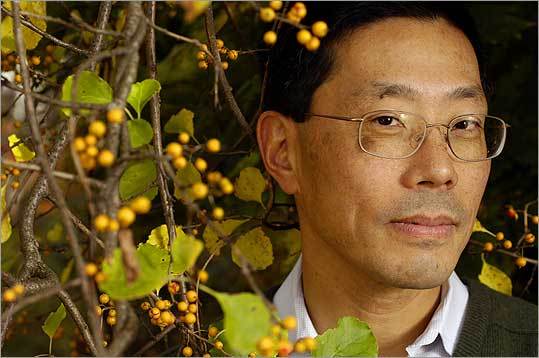When I started putting this blog together, I had a really modest goal: organize some information about EEStor in a blog format so that people could find it easily, read and discuss it. My attraction to the EEStory was not unlike many of you--skeptics and fans of EEStor alike--in that, I saw a bit of hope in the work being carried out at EEStor which could benefit alot of people around the world today and possibly free our economy and ourselves from dependency on oil. The more I dug into the story, the more fascinated I got in large part because EEStor has held on to its secrecy for so long. Many people sent me encouraging notes to continue to work to make sense of what is happening at EEStor.
I got a lucky break in my efforts in that Dick Weir actually gave me the time of day to take a phone call from me. He didn't have to do that. I was attacked personally for making this claim and understandably some of that originates from my intention to maintain this blog anonymously and my admission that I own stock in Zenn Motors....but alot of it stems from a distinct lack of manners and civility and greed that lives in our culture unfortunately. Mr. Weir has been nothing but kind to me in taking my calls and helping me understand what he was able to relay and still stay on course with his mission.
Alot of people ask me, "what do you make of Dick Weir as a person, do you believe him?" I say this truly, I like Dick Weir, I do believe him and I would like him even if this EEStor technology never comes to fruition. Why do I feel that way about someone I've never met in person but only spoken to over the phone? Reason #1: Weir is a friendly soul. My personal take on him, which I am sure other people will validate, is that he is not pompous, cocky, off-putting or in any way snooty, rude or combative. He's inviting, jolly, friendly and amusing--with a good sense of humor. My read is he's not out to prove anything to anybody from a personality point of view. I honestly think that we have a man here who has been plying away at a practice or trade for maybe 50 years with a discipline and focus that is uncommon except among pioneers. So because EEStor has chosen to keep a low profile as they go through steps to develop their business--protect their IP, build out their production--that this implies they are scamming everyone? Let me be very clear here: if you talk with Dick Weir yourself, you will very quickly see that this is not the type of person who pulls scams. Make up your own mind on this but I am telling you, the reader of this blog, that I do not sense any shred of scam or hoax in Dick Weir at all. Zero. I'm not saying I am an expert at reading people but I have common sense. And one thing I can tell you is that the way some people express themselves in the comments threads, even if they turn out to be correct about whatever it is they are trying to prove, I would not trust them. Because, your character is a clue to your honesty and trustworthiness.
So, as I stand back and look at what has become of this blog, I can see that I have not done a good job of sticking to what I had originally laid out back in June when I said:
In the meantime, moving forward, I'm more than a little concerned about the level and quality of comments being posted on my blog. What we all have in common is an interest in whether or not EEStor can deliver this amazing technology. We can disagree and even be cranky about each other's assessments of this. But I'd like to ask that everyone show a little more civility and class. My blog is like my home. If I invite you in, act like a guest. I'm going to hold off moving to a moderated comment format for now. My guess is there are always going to be a few people who go beyond polite skepticism and issue vulgarities to ruin the atmosphere. If it keeps up, I'll have to moderate the comments.
Now, it seems to me I have made a mistake. In my attempt to increase discussion, I changed the format of the blog to allow anonymous posting. And even among posters with recurring usernames, I have not stuck to my plan to try and keep the discourse on this blog civil. I would also like to thank Steve for making this clearer to me via email. He was right that anonymous posting and some of the comments posted should be deleted immediately. I am taking corrective actions on that now. Anonymous posting is no longer permitted. Further, I am going to make an effort to remove comments that are not respectful and/or offensive and I would ask help from readers to do this well. Simply shoot me an email with a link and reference to an offensive post, and I will delete it after considering the merits. Now, of course, this is probably going to become unmanageable. So I may have to move to fully moderated comments only. Thats where all comments have to go to me in email and I have to manually approve each one. I'm not a fan of that format because I believe real dialogue is hampered in part due to the time delays....but I'm going to try and maintain a clean blog here. I'm asking for some help from the readers on this.
So, taken altogether here, I'd like to apologize to EEStor and to Dick Weir, personally for not doing a better job of maintaining a blog worthy of being a source of information for EEStor. I think I can do a better job moving forward and restore some of the innocence that sparked my efforts to launch this blog. And if you, the reader, think these words from me sound strange, then consider this: imagine you came up with a great technology that could help many people, but as you stuck to your plans, kept your head down and moving forward, people started to attack you personally--people who have never met you, calling you things which should only be reserved for unaccomplished slothful people....eventually it would wear you down. And you know what, in Mr. Weir's case, it's completely undeserved. Before it's all said and done, if all goes well, the man may be awarded a Nobel prize for his breakthroughs.
And I'd also like to apologize to readers who have been offended at some of the comments on this blog. Please email me any offensive comments and I will do my best to delete them.
Invariably, some questions may arise as to why I deleted certain comments and not others. All I can say to you is if you had a comment deleted, it was probably disrespectful or contained content which included a personal attack. I would invite you to direct your energy elsewhere to conduct yourself in that manner. But I would also invite you to resubmit your comment devoid of personal attacks. This can be a place where people debate, but it is my blog and I want to keep the discourse at a higher level.
And I would pledge that if I can't operate this blog in a manner befitting it's subject matter, then I will have to close up shop which would be really disappointing to a lot of people.
Finally, I don't need to run this blog.My main motivation is to increase awareness of what EEStor is up to in the hopes that in some small way, it could hasten it's arrival. That's something on which even skeptics who comment here can agree with me.
 In December of 2007, EEStor Inc., working with the Austin, TX based law firm of Larson, Newman, Abel, Polansky & White, applied for trademark protection of "EEStor" and "EESU." The trademarks were approved in September of 2008. Among the trademark "specimens" offered in the application is a document referred to as "Preliminary Ceramic Battery Specifications" which appears to contain the first known EEStor released energy packaging information.
In December of 2007, EEStor Inc., working with the Austin, TX based law firm of Larson, Newman, Abel, Polansky & White, applied for trademark protection of "EEStor" and "EESU." The trademarks were approved in September of 2008. Among the trademark "specimens" offered in the application is a document referred to as "Preliminary Ceramic Battery Specifications" which appears to contain the first known EEStor released energy packaging information. 35 hrs of run time. Or roughly speaking 7 cross country flights without recharging. An iGo device that had various output cabling converters could keep you mobile for days under normal use. All of this would be with a 90 second charge time using a specialized charger.
35 hrs of run time. Or roughly speaking 7 cross country flights without recharging. An iGo device that had various output cabling converters could keep you mobile for days under normal use. All of this would be with a 90 second charge time using a specialized charger.










 Back in the late 1930s, when it became apparent that Nazi Germany was approaching the completion of a nuclear weapon, a US project involving over 130,000 people and the equivalent of $24Bil of today's dollars was carried out to develop nuclear weapons. Distributed at sites around the USA (and world), pockets of several thousand people would come to worksites knowing only enough to get their own particular job done each day and no one else's. Such was the secrecy of the project.
Back in the late 1930s, when it became apparent that Nazi Germany was approaching the completion of a nuclear weapon, a US project involving over 130,000 people and the equivalent of $24Bil of today's dollars was carried out to develop nuclear weapons. Distributed at sites around the USA (and world), pockets of several thousand people would come to worksites knowing only enough to get their own particular job done each day and no one else's. Such was the secrecy of the project. 








